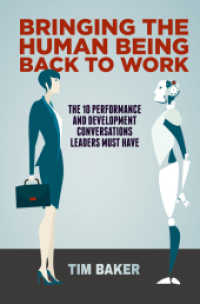Full Description
Freud's relationship with his Judaism - his by virtue of his self- description as a 'fanatical Jew' - was framed by two of his convictions. He was centered both by his passionate cultural affiliation and by his atheism. Within these internal guideposts lay a Jewish life layered by tensions, pleasures, and identifications. His creation - psychoanalysis - has labored to honor its Jewish influences. Recent studies of these insights have contributed to the current interest in listening more carefully to the individual meanings of analysands' religious life.
This lecture series was designed to introduce to the public both the similarities and the differences between the psychoanalytic and the Jewish world views. The contributors are among the thought leaders of our generation who work at the interface of the intrapsychic and religious states of mind. We learn how each has influenced the other and perhaps how each has been enriched by the other.
A tour de force delving into the influence of Freud's Jewish roots on the development of psychoanalysis.
Contents
Acknowledgements
About the editor and contributors
Preface
CHAPTER ONE
Insight and tradition: The Enlightenment, psychoanalysis, and the Jews
Eli Zaretsky
CHAPTER TWO
Forgiveness in Judaism and psychoanalysis
Stephen Frosh
CHAPTER THREE
Sigmund Freud, the Jewish body, and hysteria
Sander L. Gilman
CHAPTER FOUR
Unconscious communication, psychoanalysis, and religious experience
Marsha Aileen Hewitt
CHAPTER FIVE
Psychoanalysis in Israel: Trauma, anti-Semitism, and victimization
Eran Rolnik
CHAPTER SIX
A Talmudist and a psychoanalyst encounter a Talmud tale
Ruth Calderon and Harvey Schwartz
References
Index








